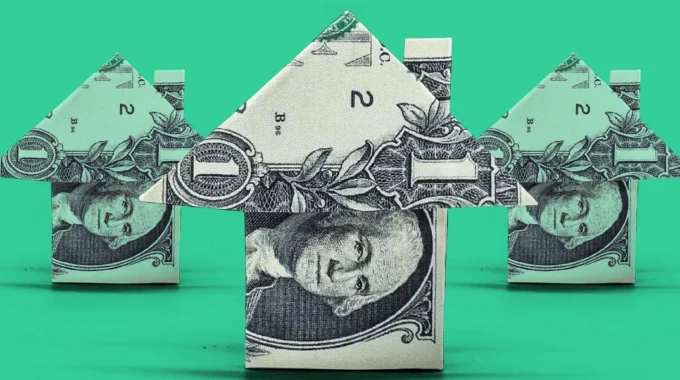Explore GAP Equity Loans, Costa Rica's Beacon of Financial Trust, for secure, reliable and transparent lending solutions.

How to finance a home in Costa Rica
Financing Your Dream Home in Costa Rica: Options for Expats
If you’re a foreigner looking to buy a home in Costa Rica, you may have considered purchasing a property outright with cash. However, for most people, this option is not practical or possible. Luckily, there are other financing options available to foreigners. This guide will explore how to finance a home in Costa Rica via three financing options.

Understanding the Real Estate Market in Costa Rica
Before diving into the various financing options, it’s important to understand the real estate market in Costa Rica. The country has experienced a surge in foreign investment over the past few decades, particularly from North Americans and Europeans seeking a tropical paradise for retirement or vacation. As a result, the demand for properties has increased, causing prices to rise in many areas. However, plenty of affordable options are still available if you know where to look.

Owner Financing: A Viable Option
One option for financing a home in Costa Rica is through owner financing. This approach involves getting a loan directly from the property owner rather than a bank. The buyer is responsible for repaying the loan amount plus interest. Typically, a down payment of 50% or more is required for 1 to 3 years at an interest rate determined by the seller. Owner financing offers some flexibility as sellers may accept interest-only, capital-and-interest, or balloon payments on a monthly, quarterly, bimonthly, or yearly basis. However, owner financing terms can vary significantly from one seller to the next, so it’s important to negotiate an affordable interest rate for the first year at the very least.

Local Banking: Public and Private Banks
Public and private banks are the two main Costa Rican banking industry sectors. Public banks, which are government-controlled, have dominated the financial sector in the country for a long time. Many foreigners have looked to public banks for real estate financing. However, remember that the process can take up to a year and may result in denial.
Private banking in Costa Rica was made possible through a legislative amendment in 1996, and local private banks have been actively lending to foreigners ever since. BAC San Jose, a branch of BAC International, is the largest private bank in Costa Rica. Scotiabank, HSBC, and CitiBank are other providers of personal banking services.

Home Equity Loans: Another Great Option
If you already own a property in Costa Rica or elsewhere, you may be able to use it as collateral for a home equity loan. This can be a good option if you need additional funds for a down payment or renovations. However, it’s important to consider the risks involved, as defaulting on the loan could result in the loss of both properties. Gap Equity Loans can provide a home equity loan starting at 12%.

Private Lending: An Alternative Solution
Private lenders are independent of traditional banks or credit unions. They can offer loans at rates similar to or lower than conventional banks. For example, Gap Equity Loans can provide 12% to 18%, according to The Global Economy. Gap Equity Loans is an alternative solution for those facing difficulties getting financing in Costa Rica. The company helps locals and foreigners overcome the challenges of owner financing and bank financing options, which are relatively easy to come by for non-residents.

Private home equity loans can be a good idea for several reasons, including:
- Access to Funds: With a home equity loan, you can access the equity you’ve built up in your home and use it to fund large expenses like home improvements, education costs, or medical bills.
- Fixed Payments: Home equity loans typically come with fixed interest rates and payments, making them more budget-friendly.
- Tax Benefits: The interest paid on a home equity loan may be tax-deductible, making it an attractive option for those looking to reduce their tax burden.
- No Restrictions: Unlike other types of loans, there are typically no restrictions on how to use the funds from a home equity loan.
- Lower Fees: Compared to other types of loans, home equity loans typically have lower fees, saving you money in the long run.
- Improving Your Credit: By making timely payments on a home equity loan, you can improve your credit score over time.
- Increase Home Value: Using a home equity loan to make home improvements can increase the value of your home, making it a smart investment for the future.

Tips for Financing a Home in Costa Rica
- Work with a reputable real estate agent who can guide you through the process and help you find properties that meet your needs and budget.
- Shop for the best interest rates and terms, and read the fine print before signing any agreements.
- Consider working with a local attorney who can help you navigate the legal requirements and protect your interests.
- Be prepared to provide detailed financial information and documentation, including tax returns, bank statements, and proof of income.
- Plan ahead for closing costs, which can be higher in Costa Rica than other countries.

In Conclusion
Financing a home in Costa Rica can be a complex process, but it can also be a rewarding investment with the proper research, financing options, and guidance. As a foreigner, you have three main options for financing your dream home in Costa Rica: owner financing, local banking, and private lending. By exploring these options and negotiating terms that work for you, you can make your dream of owning a home in Costa Rica a reality.
-Article by Glenn Tellier (Founder of Grupo Gap)
![]() WhatsApp Lawsen at +506 4001-6413
WhatsApp Lawsen at +506 4001-6413
Monday to Friday
9 am – 5 pm for any questions!

*Loan Request Form
Frequently Asked Questions
What are private home loans in Costa Rica?
Private home loans in Costa Rica are loans provided by non-traditional lenders, such as private individuals or companies. These lenders typically have more flexible requirements for approval and may offer higher interest rates than traditional bank loans.
What financing options are available for Costa Rican real estate?
The most common financing options for Costa Rican real estate are bank loans and private financing. Bank loans typically require a larger down payment and have stricter requirements for approval. In comparison, private financing may have higher interest rates but can be easier to qualify for and require a smaller down payment.
How can a foreigner finance a home in Costa Rica?
Foreigners can finance a home in Costa Rica through owner financing, local banking, or private lending.
Who are the mortgage lenders in Costa Rica?
Costa Rica has several mortgage lenders, both traditional banks and private lenders. Some of the most well-known banks that offer mortgages in Costa Rica include Banco Nacional, Banco de Costa Rica, and Scotiabank.
How can I finance a home in Costa Rica as a foreigner?
Foreigners can finance a home in Costa Rica through traditional bank loans or private financing. However, working with a reputable lender and consulting a real estate attorney is important to ensure the transaction is legal and compliant with all Costa Rican laws and regulations.
What is private lending for real estate in Costa Rica?
Private lenders are independent of traditional banks or credit unions and can offer loans at rates similar to or lower than conventional banks. Gap Equity Loans is a company in Costa Rica offering 12% to 18% loans.
Who are the best lenders for Costa Rican property financing?
The best lenders for Costa Rican property financing will depend on your individual financial situation and needs. Researching and working with a reputable lender like Gap Equity Loans is important, which offers competitive interest rates and flexible payment terms.
What financing options are available for Costa Rican condos?
The financing options available for Costa Rican condos are similar to those for other properties, including bank loans and private financing. However, it’s important to consider the unique requirements and regulations for condo financing in Costa Rica.
Can I get financing for Costa Rican land?
Yes, traditional and private bank loans offer Costa Rican land financing. However, the requirements for approval and interest rates may vary depending on the location and intended use of the land.
What are the Costa Rican real estate financing laws?
The Costa Rican real estate financing laws govern the requirements and regulations for obtaining and offering real estate financing in Costa Rica. These laws cover interest rates, down payments, and legal requirements for lenders and borrowers.
What are the home financing requirements in Costa Rica?
The home financing requirements in Costa Rica may vary depending on the lender and type of financing. However, common requirements include a down payment, proof of income, and good credit. It’s important to consult with a lender to determine the specific requirements for your situation.
What are the most common owner financing terms?
The most common owner financing terms include the purchase price, down payment, interest rate, repayment period, and any penalties for missed payments. These terms can be negotiated between the buyer and seller, and it is important to have a written agreement outlining the financing terms.
What are the rules for owning property in Costa Rica?
Foreigners can own property in Costa Rica, and there are no restrictions on the amount or type of property that can be purchased. However, working with a reputable attorney is important to ensure all legal requirements are met, and the transaction is completed properly.
Is it possible to get a mortgage in Costa Rica?
Yes, it is possible to get a mortgage in Costa Rica. However, the process can be complex, and requirements may vary depending on the lender. It is important to have a good credit score, a steady income, and a down payment of at least 20% of the property’s value.
What is fee simple ownership in Costa Rica?
Fee simple ownership is the most common form of property ownership in Costa Rica. It is a type of ownership in which the owner has the complete and unrestricted right to use, sell, or transfer the property. It is similar to freehold ownership in other countries.
What is the most common form of ownership fee simple?
Fee simple ownership is the most common form in many countries, including the United States and Costa Rica. It gives the owner complete and unrestricted ownership rights over the property.
Is it possible to get a mortgage in Costa Rica?
Yes, it is possible to get a mortgage in Costa Rica. However, the process can be complex, and requirements may vary depending on the lender. It is important to have a good credit score, a steady income, and a down payment of at least 60% of the property’s value.
How much do you have to put down to buy a house in Costa Rica?
The down payment required to buy a house in Costa Rica is generally 20% of the property’s value if you can go to the bank. However, this can vary depending on the bank and the buyer’s circumstances.
What is the mortgage interest rate in Costa Rica?
The mortgage interest rate in Costa Rica can vary depending on the lender, the type of mortgage, and the current market conditions.
How long are mortgages in Costa Rica?
Bank mortgages in Costa Rica can have a repayment period of up to 30 years, depending on the bank and the specific terms of the loan. However, shorter repayment periods are also available.
Is it easy to buy a home in Costa Rica?
Buying a home in Costa Rica can be complex, especially for foreigners. Working with a reputable loan company and real estate agent is important to ensure all legal requirements are met and the transaction is completed properly.
Does Costa Rica have credit scores?
Yes, Costa Rica has a credit scoring system similar to other countries. Credit scores are used by banks to evaluate the creditworthiness of borrowers and to determine their eligibility for loans. It is important to have a good credit score when applying for a mortgage or other type of loan in Costa Rica.
Who is Gap Equity Loans?
Gap Equity Loans is a private lending company that provides financing solutions for those struggling to obtain financing in Costa Rica. Private lenders can provide interest rates ranging from 12% to 18%.
How to get a loan in Costa Rica?
Simple apply here
Contact us for more information, or fill out a loan request now!
Need Residency status in Costa Rica? – Click HERE.
Looking for Real Estate? – Click HERE.
Want to invest? – Click HERE.
Article by Glenn Tellier (Founder of CRIE and Grupo Gap)




